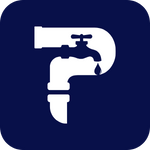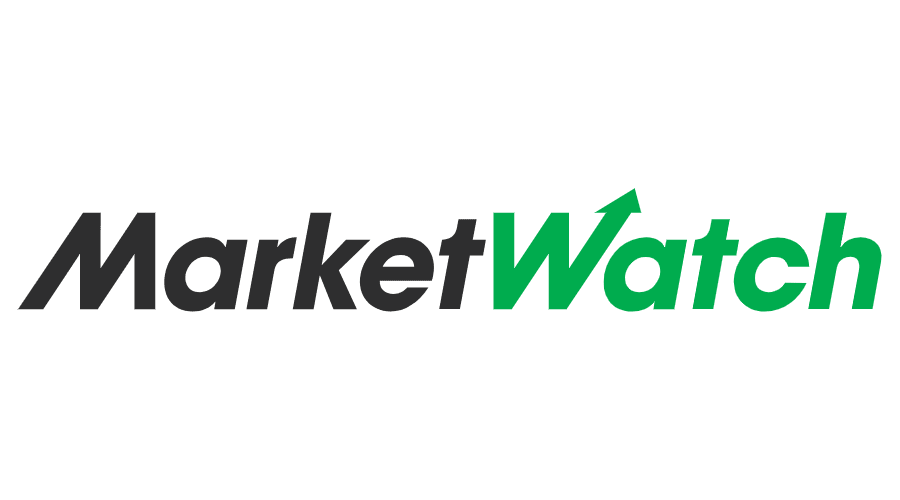The HVAC (Heating, Ventilation, and Air Conditioning) market is constantly changing, and companies must adjust to new technology & shifting customer demands. As the need for smart home technologies & energy-efficient solutions grows, it is essential for any company hoping to succeed to comprehend the HVAC market. This article will go over key tactics for HVAC businesses, such as determining target clients, using digital marketing, & tracking results.
Key Takeaways
- The HVAC market is highly competitive and constantly evolving, requiring businesses to stay updated on industry trends and customer preferences.
- Identifying target customers involves understanding their specific needs, preferences, and pain points, and tailoring marketing strategies to address these factors.
- Creating compelling marketing materials, such as informative content, visually appealing graphics, and customer testimonials, can help businesses stand out in the HVAC market.
- Leveraging digital marketing strategies, including search engine optimization, pay-per-click advertising, and email marketing, can help HVAC businesses reach a wider audience and generate leads.
- Building a strong online presence through a professional website, active social media profiles, and positive customer reviews can enhance credibility and attract potential customers in the HVAC market.
- Utilizing social media advertising on platforms like Facebook and Instagram can help HVAC businesses target specific demographics and engage with potential customers.
- Developing referral programs can incentivize existing customers to recommend the HVAC business to others, leading to valuable word-of-mouth marketing and customer acquisition.
- Measuring and analyzing marketing performance through key performance indicators, such as website traffic, conversion rates, and customer acquisition cost, can help HVAC businesses optimize their marketing strategies for better results.
The HVAC market is a vibrant industry that includes a broad range of goods and services intended to control the temperature inside buildings. As consumers' awareness of environmental sustainability and energy efficiency grows, they have more options than ever before. As a result of this change, there is an increasing need for sophisticated HVAC systems that use less energy while still offering comfort. HVAC companies need to stay up to date on technological advancements & industry trends in order to survive in this cutthroat market. The way people interact with their heating & cooling systems has changed, for example, due to the proliferation of smart thermostats and IoT (Internet of Things) devices.
Businesses will probably obtain a competitive advantage if they make research & development investments to integrate these technologies into their products. Also, for compliance and customer trust, it is essential to comprehend energy efficiency standards & regulatory changes. A key component of any marketing strategy is determining the target market. Potential clients for the HVAC sector can be divided into a number of groups, such as industrial clients, commercial property managers, and residential homeowners. To develop successful marketing campaigns, each segment's particular requirements and preferences must be taken into consideration.
Comfort, cost savings, and energy efficiency are frequently top concerns for residential clients. The main goal of marketing campaigns should be to inform homeowners about the advantages of contemporary HVAC systems, such as reduced utility costs and better air quality. However, commercial clients might place a higher value on scalability and dependability, looking for solutions that can handle bigger spaces and more demanding requirements. Conversion rates and engagement will increase when marketing messages are adapted to appeal to these different audiences.
| Metrics | Results |
|---|---|
| Leads Generated | 150 |
| Conversion Rate | 25% |
| Revenue Increase | 30% |
| Customer Satisfaction | 90% |
After determining your target market, the next stage is to develop persuasive marketing collateral that clearly conveys the benefits of your HVAC services. To draw in potential customers, you can use eye-catching brochures, educational blog entries, & captivating videos. It's crucial to emphasize important advantages over features when creating marketing collateral. Instead of just stating an HVAC system's technical details, for instance, highlight how it can eventually lower energy costs or enhance indoor air quality. Adding case studies and client endorsements can also help you gain the trust of potential customers by giving your statements more authority.
In marketing materials, visual components are also very important. You can make your content easier to read & more engaging by including infographics that show energy savings or before-and-after pictures of installations. You can produce marketing materials that connect with your audience and generate interest in your services by fusing educational content with eye-catching images. Using internet marketing techniques is crucial for HVAC companies trying to grow in the current digital era. One of the best strategies to improve visibility in search engine results is search engine optimization, or SEO.
By optimizing your website with pertinent HVAC service-related keywords, you can draw in organic traffic from prospective clients who are actively looking for answers. Another effective weapon in your digital toolbox is content marketing. You can establish your business as an authority in the field by consistently posting educational blog entries about energy-saving techniques, HVAC maintenance advice, or industry trends.
Email marketing is also a useful tactic for keeping up with current clients and nurturing leads. By sending out newsletters with special offers or seasonal maintenance advice, you can keep your brand at the forefront of consumers' minds and promote repeat business.
Any HVAC company looking to draw in new clients & hold onto its current clientele must have a strong web presence. This starts with a well-designed website that acts as a central location for data regarding your offerings, costs, and contact information. Your website should be search engine optimized, mobile-responsive, and easy to use so that potential clients can find you online.
Maintaining an active presence on review sites like Yelp and Google My Business is crucial in addition to having a strong website. Your online reputation can be improved by encouraging pleased customers to submit reviews, as these can have a big impact on the decisions of prospective buyers. Reacting quickly to reviews, both favorable and unfavorable, shows that you value customer service and can foster trust with potential customers. Also, to interact with your audience directly, think about producing educational content for websites like YouTube or holding webinars.
You can build your reputation as an authority in the field by offering insightful information about HVAC systems & maintenance procedures. focused marketing. Effectively targeting potential customers is made simpler by using social media advertising to reach particular demographics based on location, interests, and behaviors. storytelling through images. Social media sites like Facebook and Instagram work especially well for displaying eye-catching content about your offerings.
To get attention, post pictures of effective installations or before-and-after makeovers. promoting involvement. Social media engagement is essential; providing prompt answers to messages and comments can help build a brand community. Organizing giveaways or competitions can also boost engagement and broaden your audience as participants forward your content to their networks. Referral programs are a great way to capitalize on current client relationships in order to bring in new business.
Offering incentives to pleased clients who recommend friends or family to your HVAC services will allow you to reach a network of prospective customers who are more likely to believe in your company because of firsthand accounts. Offering incentives like gift cards or savings on subsequent services for successful referrals is one way to design a successful referral program. By giving them promotional materials or referral links to distribute to their network, you can make it simple for customers to get involved.
Using social media platforms and email newsletters to advertise your referral program can help increase awareness among your current clientele. Other people may be inspired to join the program by showcasing the achievements of prior referrals.
Track website traffic, conversion rates, and user behavior with tools such as Google Analytics. This data can offer insightful information about which marketing initiatives are producing the desired effects. Also, track social media platform engagement metrics to evaluate how well your advertising & content campaigns are working.
Keep an eye on which posts get the most interaction or conversions so you can adjust your approach over time. You can make data-driven decisions that improve your marketing efforts by routinely analyzing performance metrics. You can make sure that your HVAC company stays competitive in a market that is changing quickly by consistently refining your strategies based on performance analysis. In summary, mastering the HVAC market necessitates a multifaceted approach that includes studying market trends, figuring out who your target audience is, producing effective marketing collateral, utilizing digital strategies, establishing a strong online presence, using social media advertising, creating referral programs, and tracking results. HVAC companies can position themselves for success in an increasingly competitive market by successfully putting these strategies into practice. Now is the moment to act!
Compare your present marketing tactics to these recommendations and pinpoint areas that need work. Your success in the HVAC industry rests on your ability to embrace innovation and adjust to shifting consumer demands!
If you are looking for HVAC marketing experts in Fort Lauderdale, Florida, you may also be interested in learning about plumbing and HVAC reputation management in London, Ontario. This article discusses the importance of maintaining a positive online reputation for your plumbing and HVAC business. By utilizing strategies such as retargeting ads in St. Louis, Missouri, you can further enhance your marketing efforts and attract more customers. For more information on how to effectively market your HVAC business, visit this article.
FAQs
What is HVAC marketing?
HVAC marketing refers to the strategies and techniques used to promote and advertise heating, ventilation, and air conditioning (HVAC) services to potential customers. This can include digital marketing, traditional advertising, and other promotional efforts.
Why is HVAC marketing important?
HVAC marketing is important for HVAC businesses to attract new customers, increase brand awareness, and stay competitive in the market. Effective marketing can help HVAC companies generate leads, increase sales, and build a strong reputation in the industry.
What are some common HVAC marketing strategies?
Common HVAC marketing strategies include search engine optimization (SEO), pay-per-click advertising, social media marketing, email marketing, content marketing, and direct mail. These strategies are used to reach and engage with potential customers and drive them to contact the HVAC business for services.
How can HVAC businesses benefit from hiring marketing experts?
HVAC businesses can benefit from hiring marketing experts who have experience and expertise in the HVAC industry. These experts can develop tailored marketing strategies, create compelling content, and implement effective campaigns to help HVAC businesses reach their target audience and achieve their marketing goals.
What should HVAC businesses look for in a marketing expert?
When hiring a marketing expert for their HVAC business, it's important to look for someone with a proven track record in HVAC marketing, a deep understanding of the industry, and the ability to develop and execute effective marketing strategies. Additionally, a marketing expert should be able to provide measurable results and a strong return on investment for their services.






